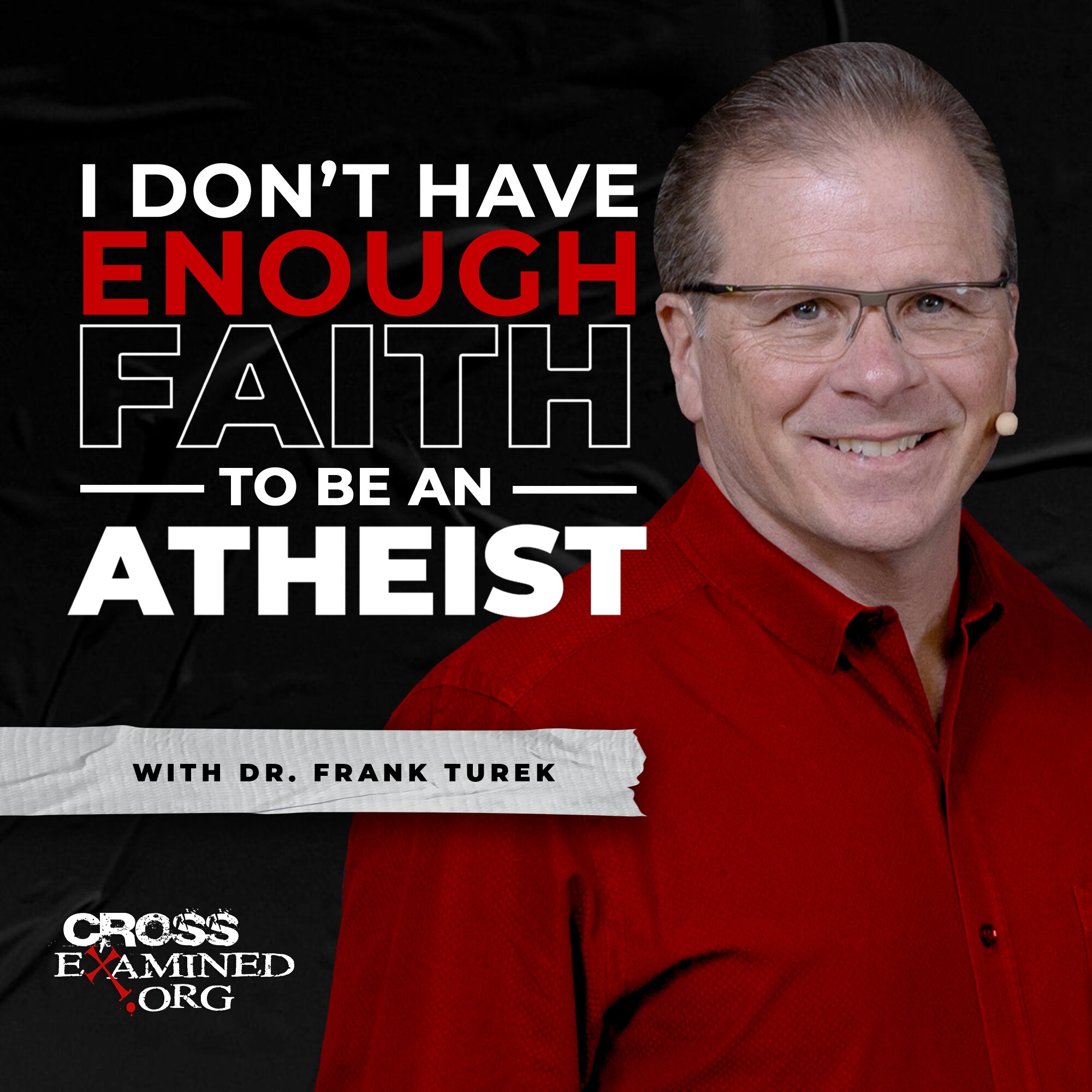
Honest Christian Conversations
A weekly podcast dealing with cultural and spiritual issues within the Christian faith.
Honest Christian Conversations
Parenting Young Adults (MINISODE)
What happens when your child turns 18? Parenting doesn't end when your child becomes an "adult". The road of parenting young adults comes with no clear map. I share my challenges navigating a new relationship with my adult daughter.
SEND FANMAIL IF YOU WANT A SHOUT-OUT ON THE PODCAST!
VISIT THE WEBSITE
https://www.honestchristianconversations.com/
JOIN THE COMMUNITY
https://www.honestchristianconversations.com/hcccommunity
CHECK OUT THE STORE
RESOURCES FOR YOU
Leave a Review for the Podcast
ARE YOU A PODCASTER?
Hey friends, welcome back to another mini-sode. What did you think of the episode with Benjamin Croshaw from True Face? Isn't he a hoot? He's just very clever. He's very witty and I enjoyed talking to him about everything youth and Gen Z.
Speaker 1:True Face is a great opportunity for anyone who is struggling to find their identity. I love the fact that their content just seems evergreen. They don't need to say, oh, we're in this demographic. If you feel it, if you resonate with it, then you can be a part of their team. You can partake in what they're giving out, their content, and I love that.
Speaker 1:It's very important that we all know what our identity is in Christ. That way, we can survive this world who's constantly trying to have us put our identities in other places where they don't belong, and our children are no different. If you have a child in public school, you know exactly what I'm talking about. They're constantly trying to steer our kids in the wrong direction, and it's not okay. As Christian parents, we should be instilling in our children the importance of knowing who they are in Christ, because once they have that firm foundation, they're not going to be looking for it anywhere else. They're going to be able to walk through life a little more healthy. Maybe they'll make bad choices we all do at some point but they'll have that firm foundation. They'll know who they are and whose they are. If you haven't had a chance to check out True Face, do go to their website, check it out. If you haven't had a chance to check out the path, make sure you do that as well, because these are great resources. Go check them out, truefaceorg, all right.
Speaker 1:Well, today I want to talk a little bit about parenting young adults. This is something that I've just entered the realm of doing, because my daughter is now 18, my eldest, and it is not easy, especially because she doesn't live with me. So that creates a whole different barrier and I have to figure out how to be her parent. While she's being a prodigal, she's slowly coming out of that transgender belief that she had. Praise God for that, that she is coming out of that. She's starting to go to church with her dad. I don't know if it's sticking, but I know God's word doesn't return void. So that's encouraging, but she still has so much growing up to do. It's so crazy.
Speaker 1:Our children may be the number 18, 19, 20, 21, but they're still our children. They're still kids. That's funny for me to say, because I kind of sometimes am told that I look like I'm in my 20s but I'm not. But it's just, it's hard to parent an adult. Even if they just turned 18, even if they're in the 30s or 40s, you're still parenting them. You're doing it differently from when they lived with you, but you're still parenting them.
Speaker 1:And it's difficult, it's a struggle and I'll be honest, I don't know how to do this. From a distance, I don't know where my parenting has to stop and her choices, whether they're good or bad, starts and I just have to be there to help her pick up those pieces afterwards. Or if it was one of those moments where I should have been there to help her and I didn't because I wasn't sure. There's just so much to trying to parent an adult, especially one who's having trouble with their identity. As I said, she's coming out of that gender stuff as well. She's having to find her identity and she's not quite ready yet to find it in Christ, which is hard, but at least she's more receptive to church and everything. So that's a plus.
Speaker 1:But our children need us. That's the takeaway I want you to have if you're an adoptive parent or a surrogate parent, whatever it is. Your child needs you, the child you are ministering into. They need you. If you're a youth pastor, like Benjamin Croshaw is they need you. They need you to show up for them. They need you to show that you care to be authentic. Our kids need to see that we are authentic people, that we make mistakes, that we struggle, that we are confused sometimes, but we also need to show them where to take all that confusion and all that difficulty and all that frustration and heartbreak and all those negative things. They need to know that they can take them to the cross and we have to show them that. We have to show them that we take our things to God when we are struggling. And if they don't see that from us, why would they want to do that themselves? We're just saying things. We're not meaning what we say. We have to practice what we preach.
Speaker 1:I've been working really hard on being vulnerable in front of my kids, being honest with them and telling them you know, mom's struggling. Today I made a big mistake. I'm sorry, I've repented. I mean I shared during the last mini-sode about one of my moments where I blew up on everybody and I also apologized, humbled enough to apologize. Our kids need to see those moments. They need to know that they aren't alone in their struggles, that we are there for them, that somebody is there for them. Most importantly, they need to know that God is there for them.
Speaker 1:If you're parenting a young adult, if you're parenting a teen who's older and more self-sufficient, you can still be there for them in this capacity as well, because they may not ask you for your advice, they may not think they need your advice but just be a good example to them of how to live, how to work. Through your struggles and your troubles and your heartbreaks and your confusions and your worries and your doubts and your identity crisis you may be having, you can be a good example. You don't have to always tell them these things. You can show them, and that's what we should be doing as parents. So that is what I'm trying to do with my daughter now that she is considered an adult by age. I am in a new stage of life where I am trying to be there for her the best way I can, even though I'm out in Connecticut and she's in Tennessee. There's a distance between us, but we have communication still and I pray for her often. I'm trusting God with her. That's another thing that we, as parents of adults have to do is we have to trust God with them, because they're fully in his hands 24-7. They were in our hands for a time and if we've done our job as their parents, we hope that they'll thrive and God will be there with them when we can't. So I hope this has encouraged you today.
Speaker 1:My question and my challenge for you today is if you are somebody who is parenting a young adult or a teen, how have you showed up for them today? And if you're feeling a little guilty because you haven't shown up for them in the way that you would like, find a way to do that. If you don't have a young adult in your house, if you're not parenting one, there has to be a young adult near you. There has to be a teen near you somehow. Maybe it's a teen who works at a grocery store. Perhaps it's a young adult who works as a waitress waiter. There's young people everywhere. There are teens everywhere. Be an encouragement to them today. They may not tell you they're struggling. Maybe you can't see it on their face when they're smiling as they're checking out your groceries. Or they're handing you your meal, but they're struggling. They're wondering. Or they're handing you your meal, but they're struggling. They're wondering what is this all for? Be a voice of God to them, be an encouragement to them. Show them the light through how you act, and if you have the ability to be a mentor to these kids, then do that. If you are a youth pastor, do your best as a youth pastor. Show up for them, be there for them. That means the world to them. Maybe you were the only one who ever does.
Speaker 1:These are important things we need to do and these are things that I'm going to work on with my eldest, with my other children, all five of them. This is something that I'm working on and it's going to take sacrifice, and I think that's the working on and it's going to take sacrifice, and I think that's the biggest reason why we haven't done it Not just me, but us as a people in general. I think the biggest reason why we're not always present the way we want to be is because of how difficult it is and time consuming. It takes energy, it takes time and it takes sacrifice of what we might want to do, and sometimes we have to do the hard work and we have to do the sacrifice, and I'm speaking to myself with this too. So if you're feeling convicted, just know that I am too. That's this mini-sode. I hope you all have a wonderful day and a good rest of your week.











